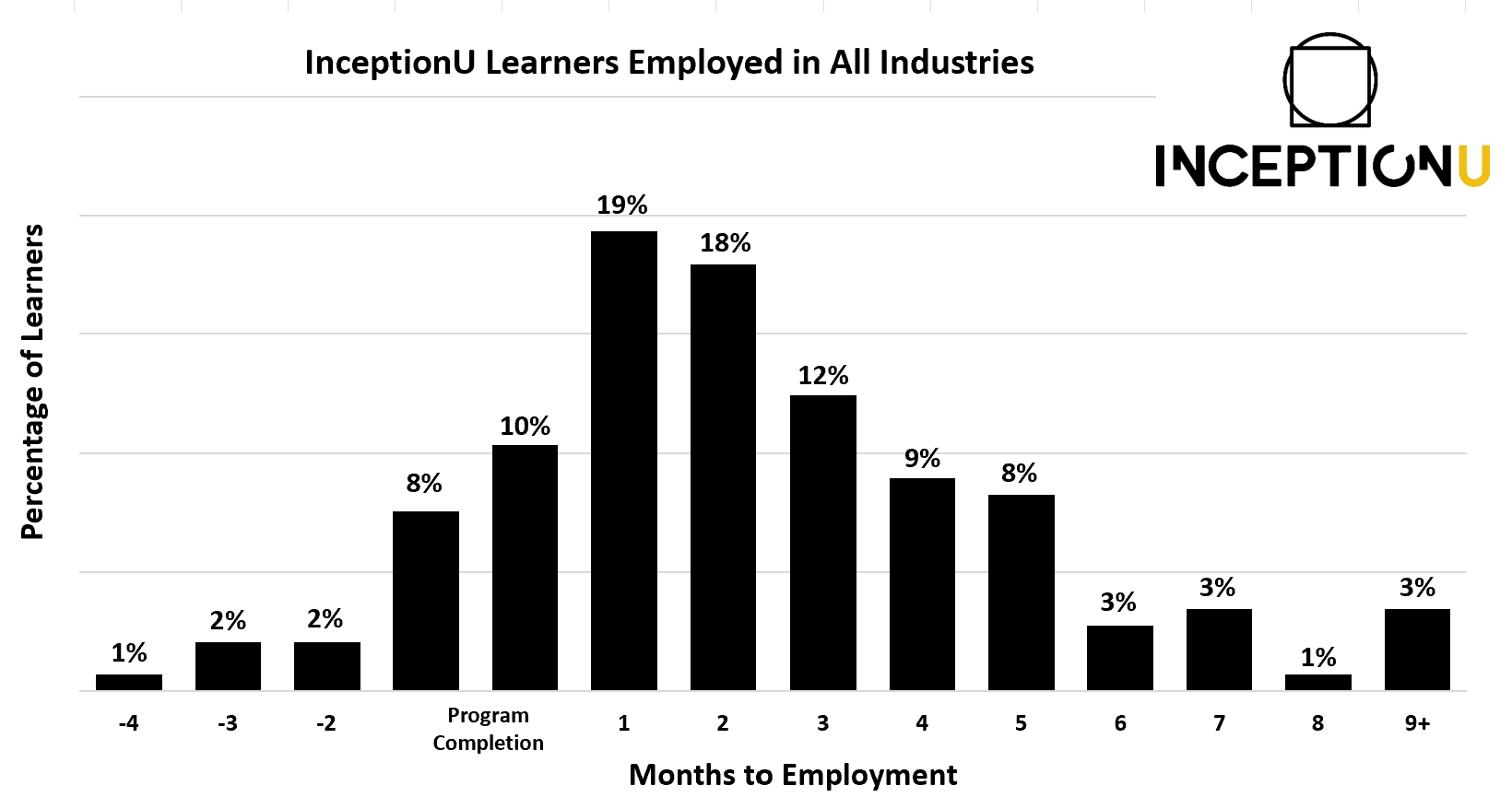A promise to our learners
By Margo Purcell, CEO of InceptionU
There are many things to consider when choosing the organization that will help you acquire new skills in your quest to become future fit.
At InceptionU, we believe wholeheartedly in honesty and transparency. When you choose our program, we honour and respect that commitment and will support your learning in the best way we know how.
In recent months, there have been some alarming stories in the media about educational institutions mis-representing themselves, mis-representing student outcomes as well as not delivering what they promised or what students paid for.
Case in point: a recent CBC story details how three private accredited colleges in Quebec left foreign students high and dry.
Meanwhile, privately run bootcamps, which are largely non-accredited organizations, are also coming under fire for embellishing their job placement rates upwards of 90%.
It’s no surprise that as the Canadian labour market evolves, there’s a greater need for a variety of rapid re-skilling and training programs. Unfortunately, it seems some are taking advantage of this fast growing and increasingly profitable sector.
So, we want to set the record straight on why we choose to remain an unaccredited institution, explain our important relationship with the Alberta government and why we are transparent with our post program job placement statistics.
1. Our desire to offer curriculum that is adaptable and responsive to the market
We choose to remain unaccredited because we are committed to building a responsive curriculum - responsive to the needs of the learners in each cohort and responsive to the needs of industry. Being responsive requires us to be agile and adaptive which is limited by the accreditation processes and curricular approval cycles.
Our learners benefit from responsive curriculum and so do other education providers. We willingly share our findings of what is most effective with other learning organizations. In an educational landscape with choice of learning experience and design, we believe in sharing insights and collaborating with others to the benefit of all who are looking to build their competence and ability to be future-fit. A “One-size-fits-all” approach makes for a bad fit for many. Sharing insights that can be adapted and applied across multiple approaches to education builds stronger options and opportunities to find the best fit learning for you.
2. We are approved and supported by the Government of Alberta
We are one of many training providers funded through Labour and Immigration in a partnership with the Government of Canada and the Government of Alberta to provide employment support programs and services. While not accredited, the Alberta government recognizes our program as one of the best ways to rapidly acquire the skills that are in demand today. Returning to post-secondary for a 4-year degree is not necessary for a mid-career individual looking for a change in career. In addition, the rising costs of formal education are becoming cost prohibitive.
3. We are required, as a condition of our funding agreement with the government, to report accurate employment rates post-program
As you might expect, our employment rates dropped during the Covid-19 pandemic, but are rebounding as the economy recovers.
We are proud of our employment rates, which are highlighted in the below graph. 53% of learners who complete our program are employed within 3 months. Within 9 months, 73% of learners who complete the program are employed.
In terms of salaries, 64% of our learners report starting salaries between $40,000 - $80,000, with average starting salary being $70,600.
Our team works diligently to follow up and stay in touch with learners after they finish the program. Through our alumni group, we continue to offer support to ensure learners do not lose momentum as they seek out a meaningful and rewarding opportunity. As we update our government partners with current employment statistics, it allows us to showcase the success of our program and open the possibility to obtain future funding.
How to know if a program is right fit for you There are many different programs out there right now - from weekend workshops, to 12 and 24-week programs and multi-year college certificates and diplomas to university degrees. The best guidance we can give is to ask questions of the institution(s) you are considering and to consider the following points:
- Do your research - don’t rely solely on advertising, marketing and websites. Dig deeper - speak with alumni, check the references and qualifications of instructors, connect with them on LinkedIn and ask around the ecosystem. If possible, attend Open House events, where you can get a feel for the culture of the program.
- Beware of too-good-to-be true job placement claims - some organizations cherry-pick data to inflate their placement rates. Inquire about how many candidates have registered for the program, how many candidates finish the program and how many have landed employment. Determine if the employment opportunities are full time, part time, contract or permanent and examples of companies that have recently hired candidates out of the program. Lastly, don’t be afraid to ask about expectations of your learning path and/or attendance requirements during the program such as “do I need to pass certain tests to stay in the program or can I be withdrawn if I have missed too many sessions?”
- Understand the difference between accredited and non-accredited programs - both have merits. An accredited institution may include and be more theory-based with a curriculum that remains consistent over many years. Non-accredited programs will likely offer you more “hands-on” and relevant career skills that may change year-to-year. However, un-accredited institutions won’t offer you a degree, diploma or certificate. Having said that, many are now exploring the idea of micro-credentials - an idea that we applaud.
Most importantly, reach out and ask for a conversation. We are proud of our program and what we offer our learners. We’d love to answer your questions and invite you to come and learn with us. You can learn more about our program through these short videos:


